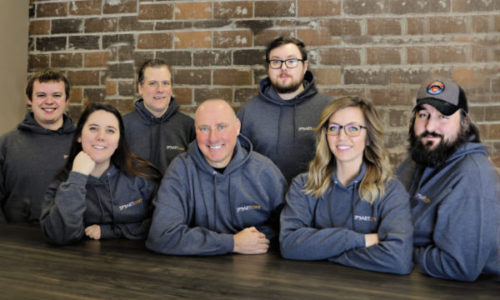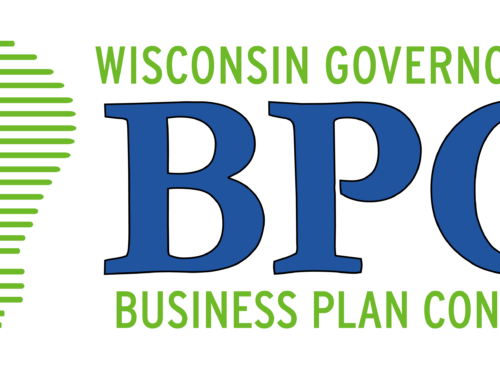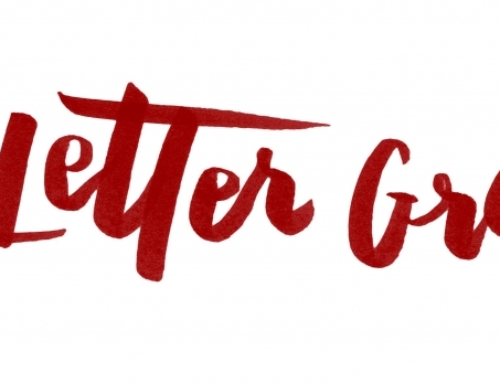
The SMARTcare Software team
In the best of times, the home health care industry has a caregiver turnover rate of 80%. Eau Claire’s SMARTcare helps small home care agencies drastically reduce that turnover rate by facilitating communication among management, caregivers, patients and their families, as well as providing a full suite of management tools.
Back in January with COVID-19 on the horizon, SMARTcare began building a toolset to help home care agencies handle the crisis. The company is offering the cloud-based toolset to agencies free of charge, whether or not they are current customers.
It includes mobile alerts that prompt caregivers to confirm they don’t have symptoms of COVID-19 when arriving at a patient’s home, to check them for symptoms, and to remind them to use personal protective equipment (PPE) when tasks call for it. Agencies can also track any testing dates and results. Together, it provides patients and caregivers the confidence that they are doing all they can to stay safe.
Scott Zielski, SMARTcare’s president and CEO, says communication is crucial, crisis or not. It’s often difficult with a remote workforce, which is one of the reasons the industry turnover rate is so high, and why SMARTcare includes secure chat and email capabilities, allowing caregivers and clients to express concerns and management to address them.
From Silicon Valley to the Silicon Prairie
Zielski and Bill Mattle, SMARTcare’s chief operating officer, met in San Francisco during the dot-com boom. They had no idea they’d be running a company together in Eau Claire, Wisconsin, more than 20 years later, but considering the forward-looking, entrepreneurial mindset they share, it’s perhaps not surprising.
Zielski, who had been living in Milwaukee, jokes that Eau Claire was closer to his cabin up north, but there were other, more compelling business reasons for the decision.
“We felt Eau Claire is an ideal place to start a technology company for a number of reasons,” he says. “It has a great work-life balance and a strong sense of community, a well-educated population and an affordable resource base with strong university support—and not only a strong work ethic, but very strong, Midwestern focus on the customer, making it ideal for us and our goal to be the best in home health care customer experience. We couldn’t be happier with Eau Claire as our home.”
The decision paid off: after just three years in business, SMARTcare was named one of the Top 10 Home Healthcare Companies for 2020 by the trade publication Healthcare Tech Outlook.
Looking to the future
Demand for home care has dropped slightly over the past few months, as those who don’t need acute care opt out to reduce contact with others, and family members working from home are able to take care of many tasks themselves. But Zielski says demand is already starting to return, and he predicts that it will only increase in the years ahead.
Care is shifting out of hospitals and nursing homes due to high costs, and home care costs are now reimbursable through Medicare and Medicaid. Many of the agencies in SMARTcare’s target audience are not yet using “smart,” connected communication tools, and may even still be using paper forms. In addition, many of the agencies that downloaded the COVID-19 toolset are now expressing interest in SMARTcare’s full suite of tools.
It’s a market with plenty of opportunity. With certification through WEDC’s Qualified New Business Venture Program, SMARTcare’s investors qualify for refundable state tax credits when they make a qualified investment in the company. Zielski says the company is seeing plenty of interest from in-state investors, and with the current crisis, interest from out-of-state investors is growing for future funding rounds.











FOLLOW US